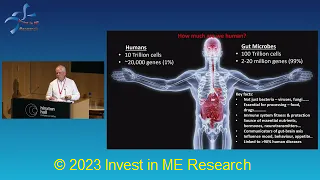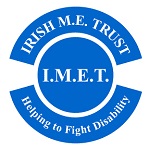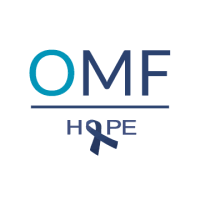
Quadram Institute, UK
An Update on Research into ME - Post-Pandemic - including aspects of long covid research
The 15th Invest in ME Research International ME Conference 2023 - IIMEC15 - took place on 2nd June 2023 at the Wellcome
Genome Campus near Cambidge, UK.
 In 2023 IiMER also celebrated the start of its eighteenth year as a charity and reinforced the charity's efforts to increase
international collaboration by arranging a week of events for research into ME - the first in person meetings since 2019.
In 2023 IiMER also celebrated the start of its eighteenth year as a charity and reinforced the charity's efforts to increase
international collaboration by arranging a week of events for research into ME - the first in person meetings since 2019.
Following the pause in conferences caused by the pandemic the theme for the conference was
appropriately entitled "An Update on Research into ME - Post-Pandemic
- including aspects of long covid research"
.
Multiple international collaborations were formed with an extremely positive atmosphere present during ME Conference Week 2023
as researchers and clinicians and patients from four continents came together.
The IIMEC15 conference showed the major initiatives and research taking place to continue an international collaborative strategy for biomedical research into ME which Invest in ME Research has been championing over fourteen years.
Research Leader, Quadram Institute Bioscience, Norwich Research Park, UK
Bhupesh Prusty currently works at the Institute for Virology and Immunobiology, University of Wuerzburg. Bhupesh does research in Microbiology and Virology. His current research focuses on ciHHV-6 reactivation and its clinical consequences.
The Tronstad Lab investigates cell metabolism and mitochondrial biology.
Dr. Nath received his MD degree from Christian Medical College in India in 1981 and completed a residency in Neurology from University of Texas Health Science Center in Houston, followed by a fellowship in Multiple Sclerosis and Neurovirology at the same institution and then a fellowship in Neuro-AIDS at NINDS.
He held faculty positions at the University of Manitoba (1990-97) and the University of Kentucky (1997-02).
In 2002, he joined Johns Hopkins University as Professor of Neurology and Director of the Division of Neuroimmunology and Neurological Infections.
He joined NIH in 2011 as the Clinical Director of NINDS, the Director of the Translational Neuroscience Center and Chief of the Section of Infections of the Nervous System.
His research focuses on understanding the pathophysiology of retroviral infections of the nervous system and the development of new diagnostic and therapeutic approaches for these diseases.
Dr Jesper Mehlsen graduated as a medical doctor in 1979 and finished his specialist training in 1990.
He has published more than 140 scientific papers in peer reviewed journals, mainly on the autonomic nervous system and more recently
on complex diseases possibly resulting form HPV-vaccination.
For more than 35 years, he has worked clinically and in research with dysfunction of the autonomic nervous system.
Such dysfunction may lead to symptoms from a number of different organs often dominated by diminished control of blood pressure
and heart rate.
Over the past 5 years, he has worked clinically and in research with patients who suspect side effects due to HPV vaccination to
be the cause of a number of symptoms, common to those seen in chronic ME.
Dr Mehlsen is co-chair of the European ME Research Group (EMERG).
Kristian Sommerfelt is a paediatrician. He completed his medical degree at the University of Bergen in 1981 and specialist in paediatrics in 1994.
Dr degree in 1997 with the theme of premature children and later development.
Since 1987, he has worked at the Children's Clinic (now the Children's and Adolescent Clinic) at Haukeland University Hospital, now as senior physician at the
section for pediatric neurology and habilitation.
Kristian has adjunct position as professor at the Department of Clinical Medicine 2, University of Bergen. He specialises in headaches, epilepsy and ME/CFS, but
has broad experience in the entire field of child neurology.
For the past 12 years, he has had a special interest in children and young people with ME/CFS, both directly with patient work and in research. He is particularly
concerned with investigation, diagnosis and the transfer of knowledge to the first-line service and school.
He has broad scientific experience with articles in international journals and authorship of chapters in several medical textbooks.
He is a member of the
European ME Research Group (EMERG).
Dr. Robert Phair, a systems biologist whose Ph.D. is in Physiology, is an internationally known expert in the area of kinetic modeling, with over 35 years of experience in the modeling of complex biological systems. He started his academic life with a degree in Electrical Engineering at MIT with the intention to apply engineering analysis to complex biological systems. He was a professor at The Johns Hopkins University School of Medicine for 16 years before co-founding Integrative Bioinformatics, Inc (IBI), a scientific consultancy in Silicon Valley, with a focus on cellular and molecular systems,where a systematic approach has been developed to model biological systems that allows effective testing of complex hypotheses against available experimental data.
Ronald W. Davis, Ph.D., is a Professor of Biochemistry and Genetics at the Stanford School of Medicine in Stanford, California.
He is a world leader in the development of biotechnology, especially the development of recombinant DNA and genomic methodologies and their application to biological systems.
At Stanford University, where he is Director of the Stanford Genome Technology Center, Dr. Davis focuses on the interface of nano-fabricated solid state devices and biological systems.
He and his research team also develop novel technologies for the genetic, genomic, and molecular analysis of a wide range of model organisms as well as humans.
The team's focus on practical application of these technologies is setting the standard for clinical genomics.
Research Leader, Quadram Institute Bioscience, Norwich Research Park, UK
The conference day was preceded by the 12th Invest in ME Research International
Biomedical Research into ME Colloquium - a two day closed researchers' meeting with
over forty of the major institutes from around the world were represented - from Europe, North America, Africa and Australasia.
The charity also initiated the European ME Research Group Early Career Researcher network - Young EMERG - and a workshop was held with delegates
attending from around the world.
These three days prior to the IIMEC15 conference brought together researchers (both new to ME and experienced ME researchers) to collaborate and share knowledge for the benefit of future research into this disease by enhancing education and effectiveness of research efforts.
The European ME Research Group also held a planning meeting to develop applications for biomedical research into ME https://www.investinme.org/IIMER-newslet-20230301.shtml We welcomed several new members to the EMERG group - from Germany, Denmark, Austria, Netherlands and Iceland - which now expands this group into a powerful organisation for research in Europe.
The Young European ME Research Group - #YoungEMERG group was formed and proved to be a great success https://www.investinme.org/emergecr-workshop202306uk.shtml
We would like to thank and acknowledge the support of our conference sponsors



